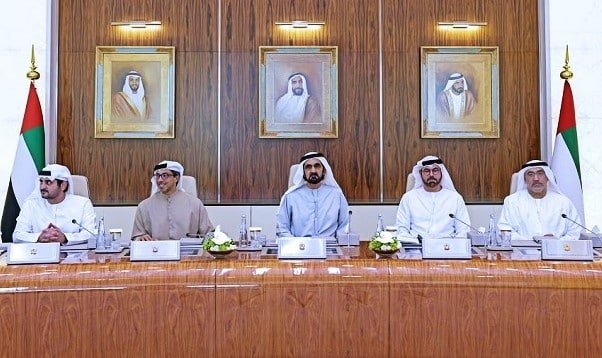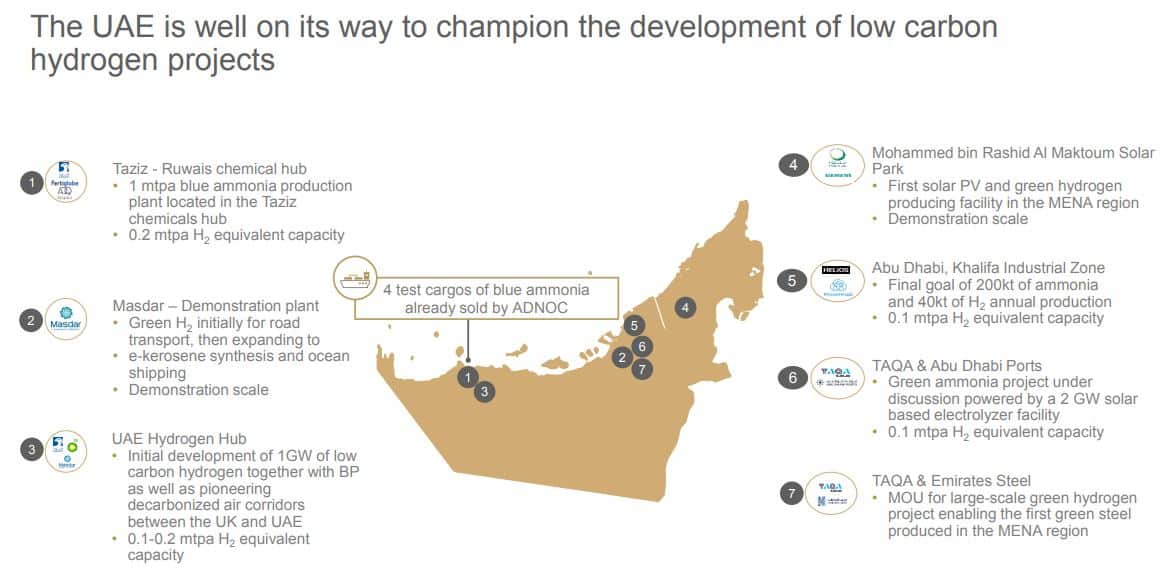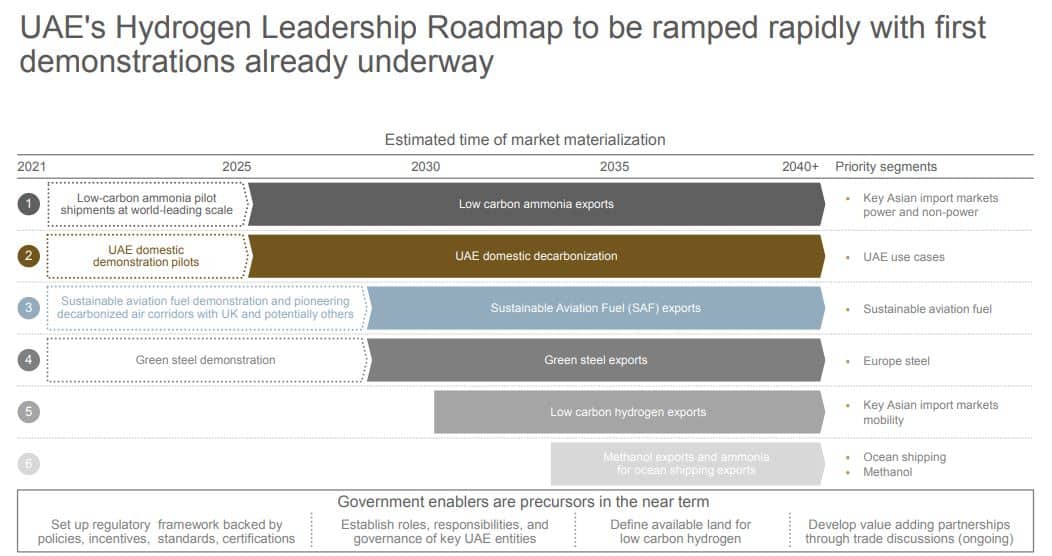The United Arab Emirates (UAE) is planning to invest $54 billion on renewables over the next 7 years as part of its strategies to reach net zero emissions by 2050.
The UAE approved its National Energy Strategy with the aim to triple its share of energy coming from renewable sources. The Middle Eastern country also sets its eyes on hydrogen as a key source of clean energy.
This plan comes as the major oil-producing nation will host the upcoming COP28 climate conference in November.
UAE Energy Strategy
Same with other major oil producers, fossil fuels still outweigh the push for a cleaner energy system globally. And the UAE received huge scrutiny from various climate activists for choosing Sultan al-Jaber, ADNOC head, to lead COP28.
Yet, the country was the first to reveal its 2050 zero goal in the region. Big part of the target is approving the country’s Energy Strategy 2050.
Prime Minister Sheikh Mohammed appointed Mohamed Hassan Alsuwaidi, Abu Dhabi wealth fund CEO and Masdar’s deputy chairman, to oversee the $54 billion investment.
Apart from relying more on renewables, other plans are to improve energy efficiency and promote the use of clean energy.
The strategy’s objective is to support research and development programs in clean energy technologies, on top of driving investments in the sector. Specifically, the UAE hopes to achieve 14GW capacity of renewable energy by 2030, up from 9.2GW current capacity.
Moreover, the strategy’s objective is to gain up to $27 billion financial savings by 2030. Overall, it targets an energy mix combining different sources of clean energy to meet its energy demand.
In the near-term, the Arab nation seeks to increase its share of clean energy to 30% by 2030. In the long-term, it hopes to cut carbon emissions from power generation to reach net zero by 2050.
At a glance, here are some targets set by UAE’s Energy Strategy for 2030, with the aim of reaching net zero emissions by midcentury.
Capital investment (in $ billion): Up to 54
Total cost of generation (in $ billion): Up to 109
Energy efficiency: 42-45%
Emission reduction: Net zero by 2050
Last year, the Arab country inked a $100 billion clean energy deal with the U.S. Their PACE (Partnership for Accelerating Clean Energy) agreement will deploy 100GW of clean energy in the two countries as well as in emerging economies by 2035. Earlier this year, the partners announced a $20 billion investment to fund 15 GW of clean and renewable energy projects.
The UAE’s oil and gas giant had also committed $15 billion to invest in low-carbon projects to cut emissions and meet decarbonization goals.
Along UAE Energy Strategy, the Cabinet has also approved the National Hydrogen Strategy.
A Leading Hydrogen Producer and Supplier
The country’s hydrogen strategy seeks to make the UAE among the leading global hydrogen (H2) producers and suppliers by 2031. The National Hydrogen Strategy builds on the previous roadmap unveiled during the COP26 climate talks in 2021.
The goal is to produce 15 million tons per annum of hydrogen by 2050. Highlighting this plan, Sheikh Mohammed remarked:
“The strategy aims to promote the UAE’s position as a producer and exporter of low-emission hydrogen over the next eight years through the development of supply chains, the establishment of hydrogen oases and a national research and development centre.”
To date, the UAE nation is well on its way for low carbon hydrogen development with 7 hydrogen projects under development that will contribute to its goal of producing 1.4 million tons of hydrogen per year by 2031, as per the National Hydrogen Strategy.
The country’s ambition is to be a global leader in low carbon hydrogen and home to a robust hydrogen ecosystem. Low carbon hydrogen refers to H2 made with low carbon emissions pertaining to either of these two hydrogen technologies:
- Blue hydrogen from fossil fuels with carbon capture and storage
- Green hydrogen made through electrolyzer powered by renewable energy
Hydrogen is a key enabler in UAE’s net zero strategy and here’s the timeline for making this goal a reality.
Ultimately, the UAE government will invest up to $54 billion by 2030 to meet the rising energy demand and to achieve net zero by 2050.



